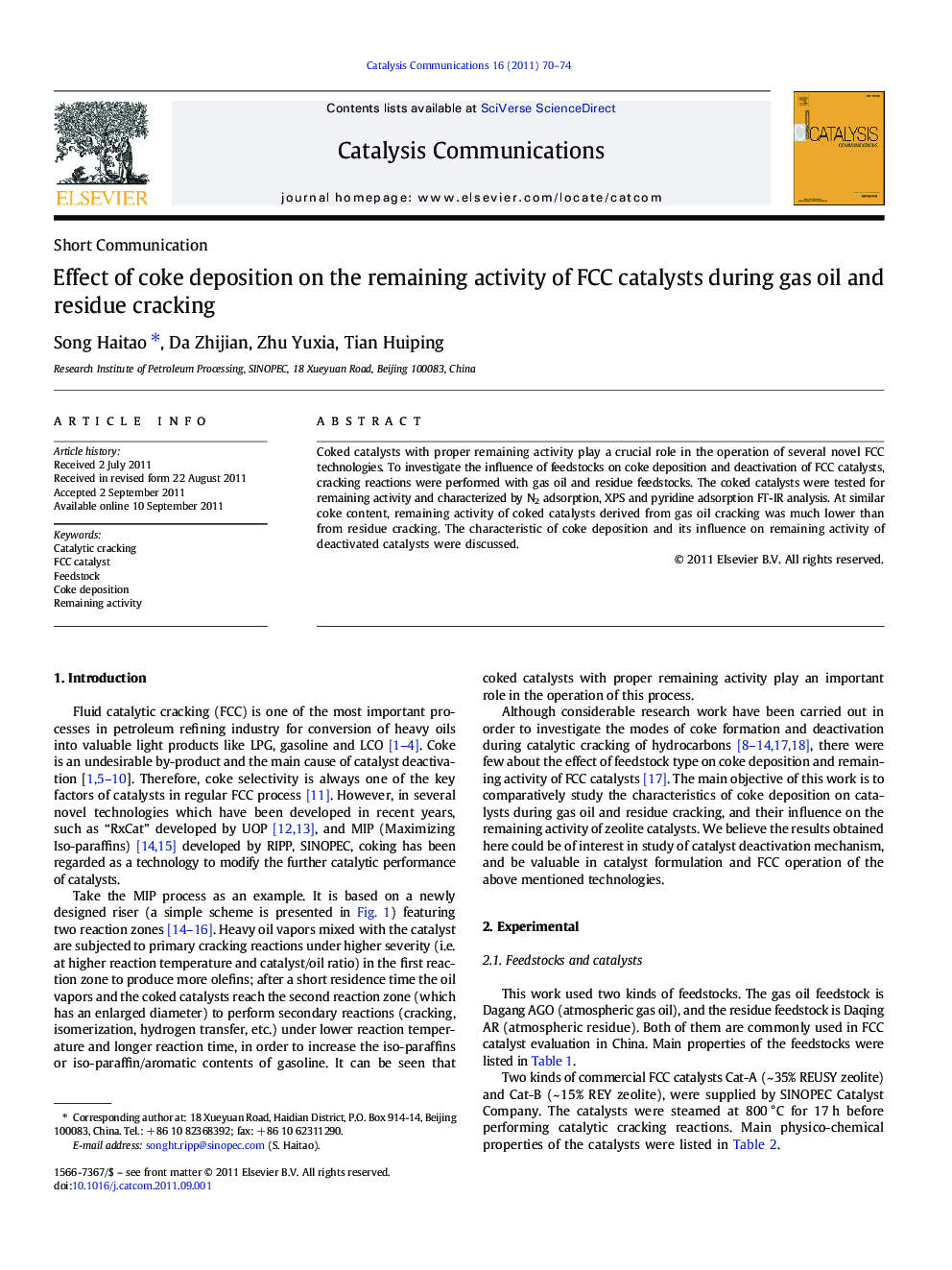| Article ID | Journal | Published Year | Pages | File Type |
|---|---|---|---|---|
| 51564 | Catalysis Communications | 2011 | 5 Pages |
Coked catalysts with proper remaining activity play a crucial role in the operation of several novel FCC technologies. To investigate the influence of feedstocks on coke deposition and deactivation of FCC catalysts, cracking reactions were performed with gas oil and residue feedstocks. The coked catalysts were tested for remaining activity and characterized by N2 adsorption, XPS and pyridine adsorption FT-IR analysis. At similar coke content, remaining activity of coked catalysts derived from gas oil cracking was much lower than from residue cracking. The characteristic of coke deposition and its influence on remaining activity of deactivated catalysts were discussed.
Graphical abstractAt similar coke content, remaining activity of coked catalysts derived from gas oil cracking was much lower than from residue cracking, as more coke was deposited into large matrix pores on/near the outer surface of catalyst particles during residue cracking than gas oil cracking.Figure optionsDownload full-size imageDownload as PowerPoint slideHighlights► Feedstock type can influence coke deposition and remaining activity of FCC catalysts. ► Coked catalysts were characterized by N2 adsorption, XPS and pyridine FT-IR analysis. ► Catalytic coke could cause more seriously deactivation than carbon residue coke. ► Carbon residue coke tends to deposit on/near the outer surface of catalyst particles.
